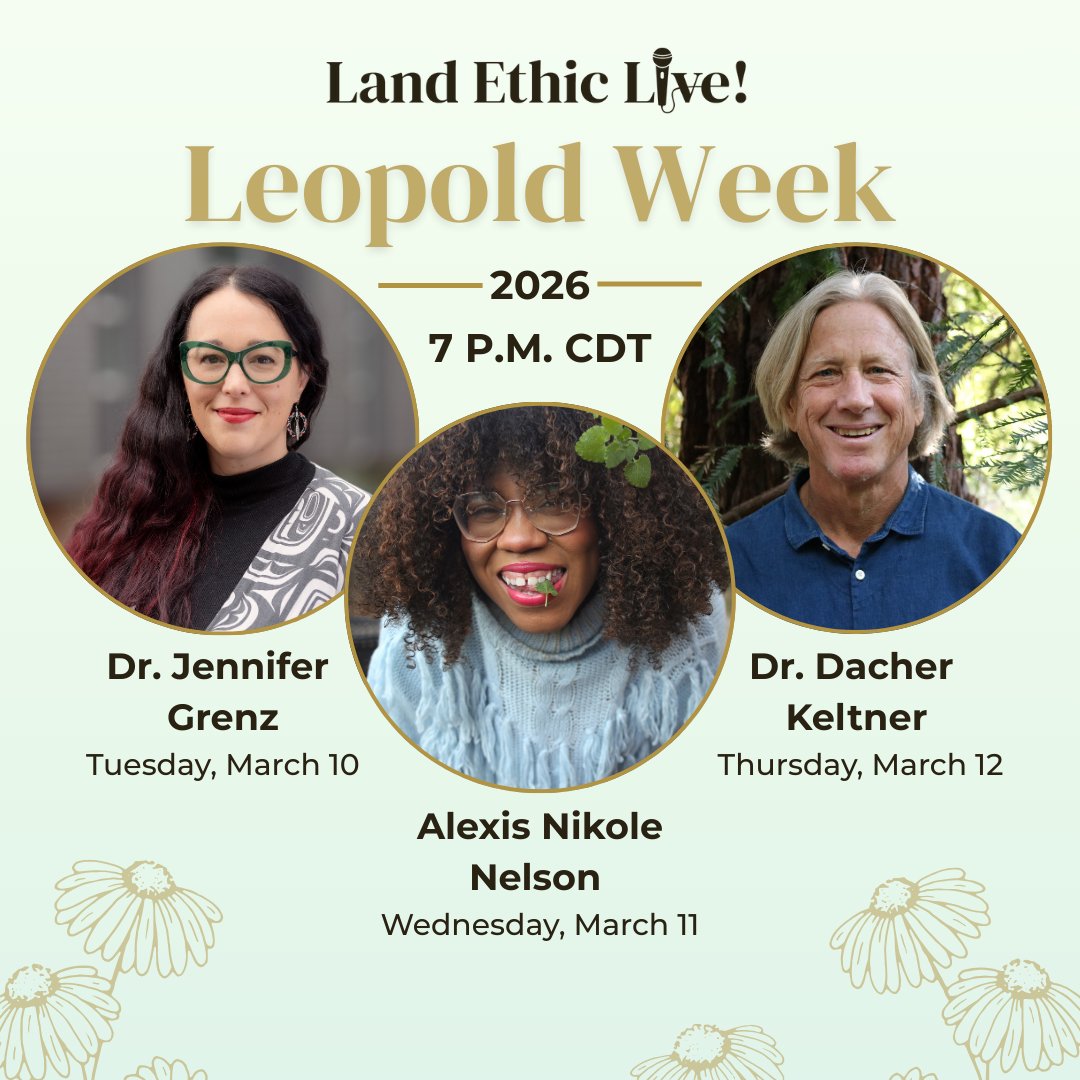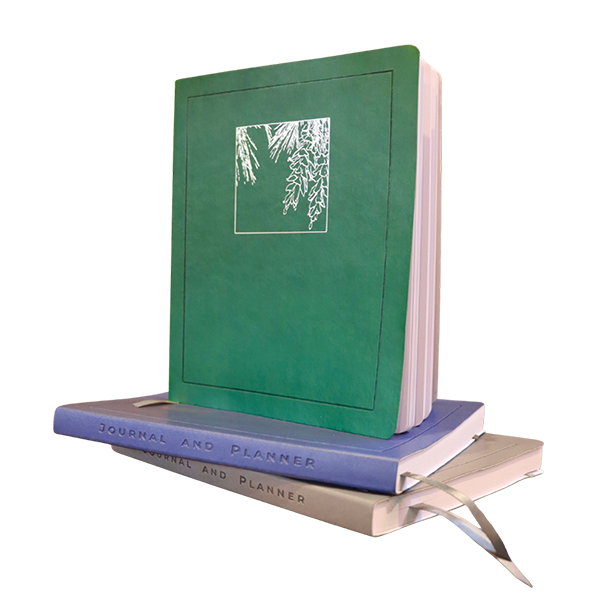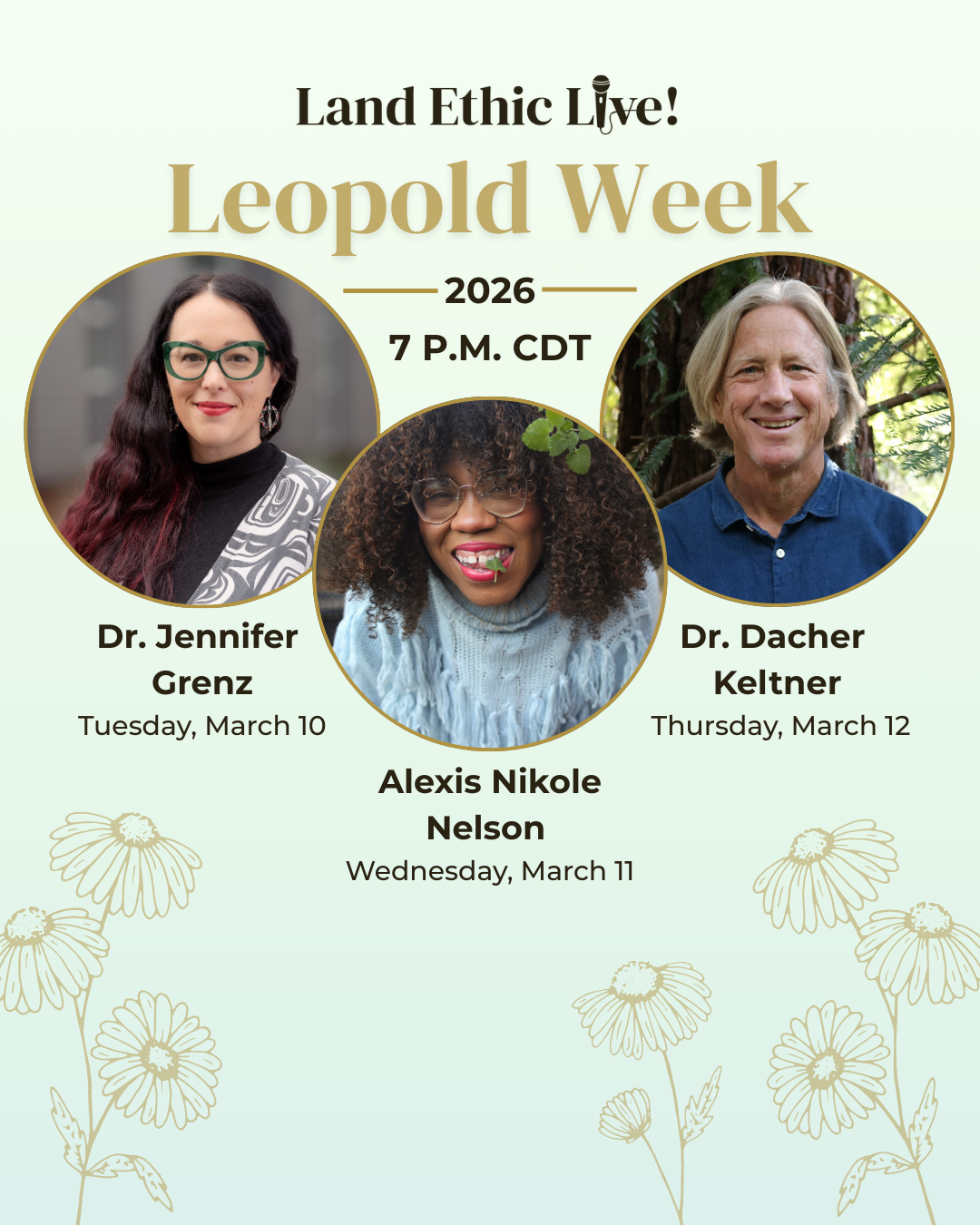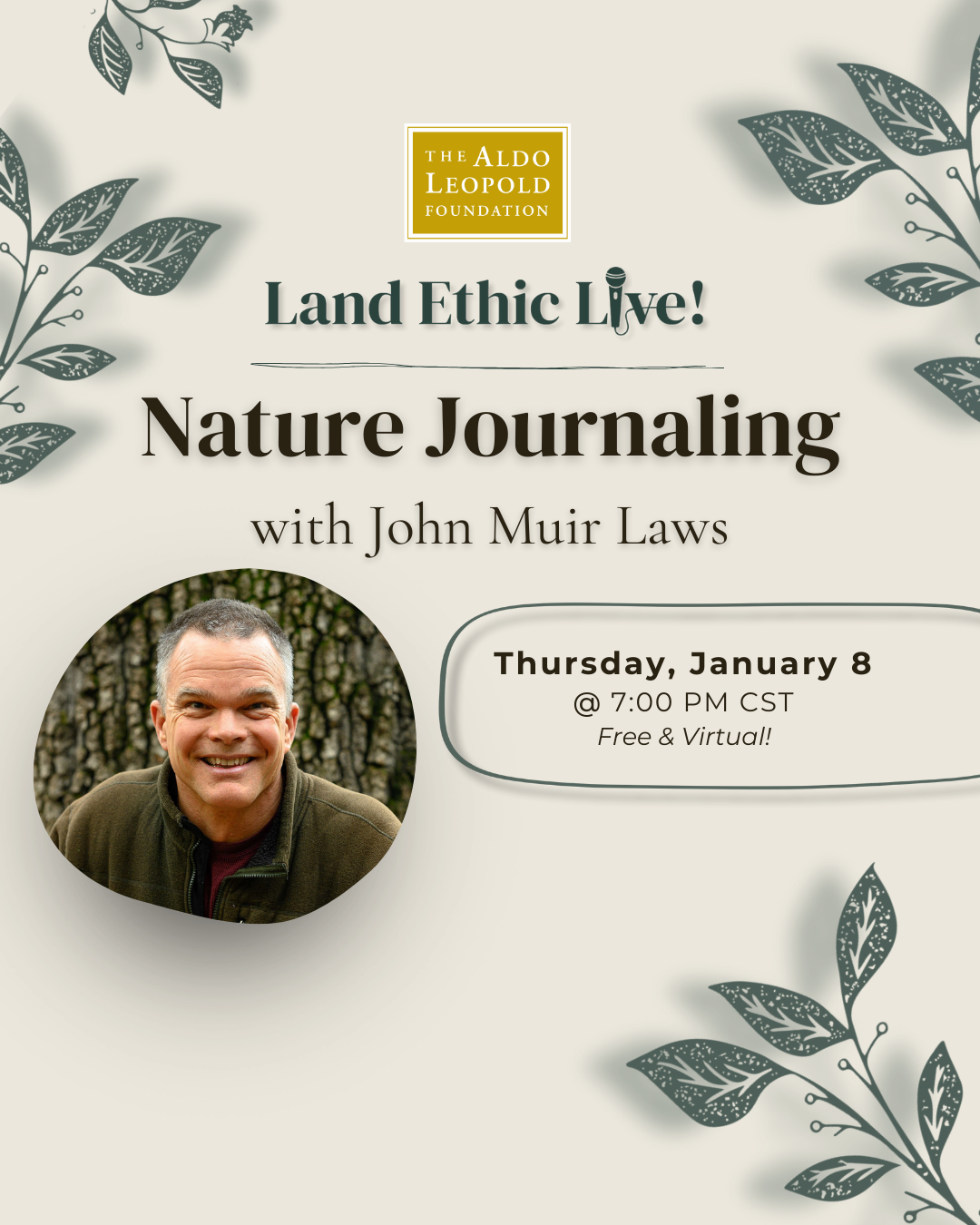Nature needs YOUR land ethic!
Stay connected through our down-to-earth e-news.
Guided by Aldo Leopold’s idea of the Land Ethic®, we champion both tangible and philosophical transformations for those dedicated to conservation, promoting responsible land stewardship and safeguarding our natural community.
At the core of the Aldo Leopold Foundation is a group of dedicated conservationists. We aim to bridge the wisdom of pioneering conservationists with the pressing needs of the present. Our approach is rooted in inspirational storytelling, promoting a land ethic and celebrating successes that inspire and empower individuals to make a difference. We value diverse perspectives as we work to preserve the natural world for future generations.


We offer a variety of programming, from in-person tours and exhibits to virtual events and webinars. No matter your interests, there are plenty of ways to engage.

Your support upholds and advances our mission of environmental stewardship. We deeply appreciate every contribution and invite you to join our mission by giving today.

Want to learn more about conservation? Our robust library of digital resources contains information for learners of all ages, as well as materials for educators.
Balm, medicine, nourisher, and companion. The natural world is an expert healer. But in a world of wounds—both personal and ecological—how can we heal ourselves and our relationships with the land?
Join us this March for Leopold Week 2026—a virtual speaker series featuring Dr. Jennifer Grenz (@jennifer_grenz), Alexis Nikole Nelson (@TheBlackForager), and Dr. Dacher Keltner. Together we will explore the places, practices, and people that can help us heal ourselves and the Earth. From harvesting edible plants and medicines to seeking out jaw-dropping landscapes and ancestral connections that make us feel a true sense of belonging, speakers will share the healing forces that can help lead us back to healthy, fulfilling relationships with the natural world.


Our new journal and planner features monthly Leopold quotes and original nature illustrations by former artist Max Sorenson. Let the seasonal meditations and gorgeous sketches connect you to the biotic community, no matter what you put on the page. The journal and planner is suitable for use in any year―or over multiple years!
Join us this March for Leopold Week 2026—a virtual speaker series featuring Dr. Jennifer Grenz, Alexis Nikole Nelson, and Dr. Dacher Keltner. Together we will explore the places, practices, and people that can help us heal ourselves and the Earth.
March 10 – Connection
Tune in for a presentation and conversation with Dr. Jennifer Grenz (@jennifer_grenz), assistant professor and Indigenous Scholar at the University of British Columbia and author of the best-selling book Medicine Wheel for the Planet: A Journey Toward Personal and Ecological Healing. Grenz will share fascinating stories from her work to address environmental challenges like wildfire recovery and food security alongside Indigenous knowledge keepers and community members, highlighting how connecting Western and Indigenous sciences can both heal the land and the communities who depend on it.
March 11 – Nourishment
Hear from chef, forager, and influencer Alexis Nikole Nelson (@TheBlackForager) who shares the joy of foraging the wild foods, medicines, and fibers found right in our own neighborhoods. In Nelson’s eyes, foraging not only helps us supplement our diets with nourishing, accessible foods, but also connects us with the land we live on and the people who have been cooking with wild foods for centuries. Learn how to start snacking for free in your own backyard and be a good steward along the way!
March 12 – Awe
Join a conversation with Dr. Dacher Keltner, a leading scholar in the study of emotions and author of Awe: The New Science of Everyday Wonder and How It Can Transform Your Life. Keltner will share how experiencing awe in nature—whether looking out at a stunning vista or simply watching an interesting bird—can make us happier, kinder humans and better stewards of the land.



In this Land Ethic Live! conversation, Carolyn Finney invites us to reconsider conservation at a pivotal moment—asking not only how we protect land, but who conservation has been for, and who it must become for in the future. In this conversation, we will explore belonging, power, and historical memory as essential elements of an ethical relationship with land. This program challenges us to imagine a land ethic rooted in justice, inclusion, and shared responsibility for the world we inherit and shape together.


.png)
"Instructions for living a life: Pay attention. Be astonished. Tell about it." —Mary Oliver
For author and naturalist John Muir Laws, attention is love. When constant headlines, advertisements, and social media posts leave us in a digital daze, the simple practice of nature journaling can help us reclaim our attention and refocus on the incredible world around us. The first step in being a good steward of the land is simply paying attention to it.
As Aldo himself could attest, observing the plants, animals, and landscapes that make up our natural communities not only delights and transforms the watcher, but also has the power to change our relationship with the earth for the better. The best part is anyone can do it anywhere—no artistic experience or natural knowledge required. And the rewards are bountiful, from improved observational skills and mental health to a more profound connection with the natural world. Will you pick up a pencil, reclaim your attention, and get back to loving the land?
Join passionate educator, naturalist, and nature journaler John Muir Laws for an exciting discussion on how to start your own nature journal, phenology, and the neuroscience behind journaling—plus, live demonstrations!
Laws is the award-winning author and illustrator of several books including The Laws Guide to Nature Drawing and Journaling and The Laws Guide to Drawing Birds.







Aldo Leopold was a pioneering American ecologist, forester, and environmentalist who profoundly influenced the modern conservation movement. Best known for his book A Sand County Almanac, Leopold introduced the concept of a "Land Ethic®," emphasizing the interconnectedness of humans and the land they inhabit, which serves as the cornerstone of the Aldo Leopold Foundation’s modern-day mission. Today, Leopold's legacy continues to inspire and guide our efforts toward conservation and harmonious coexistence with the natural world.